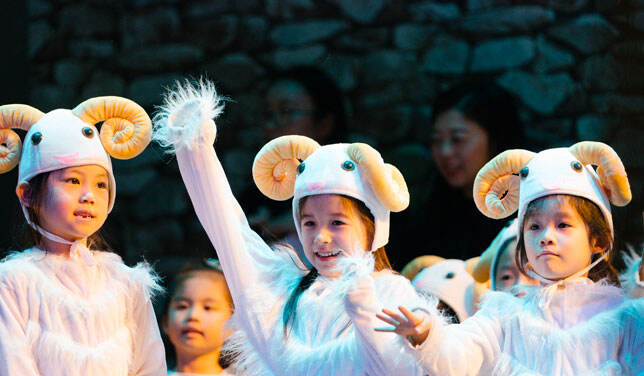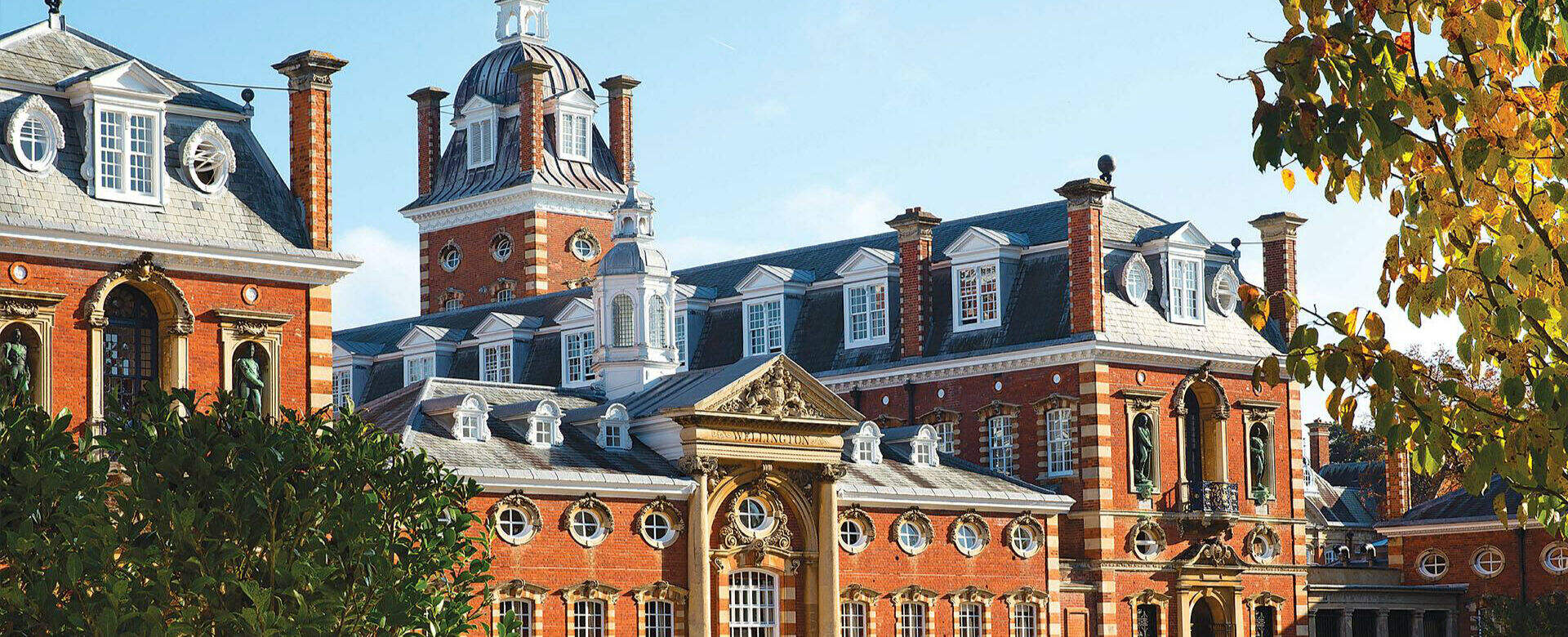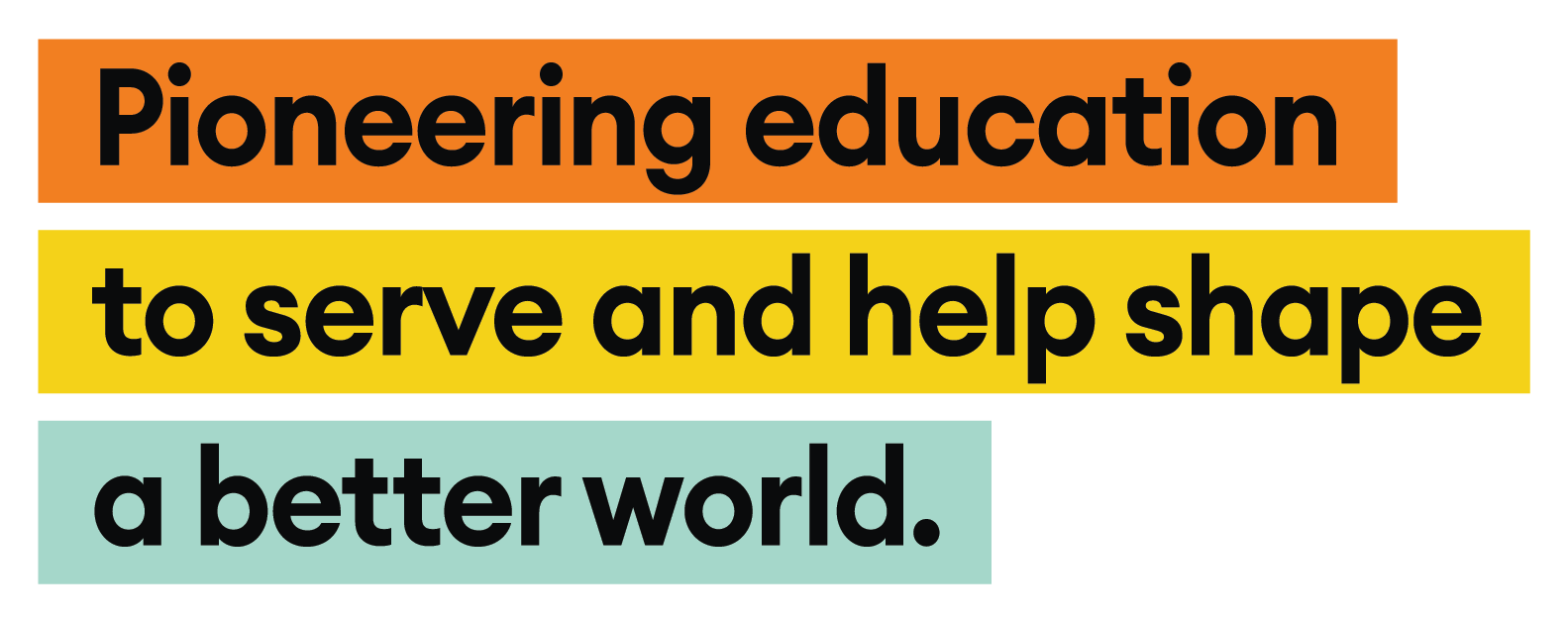A mother’s greatest achievement: Interviewing three mothers

Our mothers play an important and indispensable role in our families. From infancy through to adulthood, one cannot help but admire the amount of time and support a mother devotes to her children, particularly where their education is concerned.
So, what is a mother’s greatest achievement? Is it the successful growth and development of her children, or herself? This is a question many women might ponder during the early stages of motherhood. It is an important question, as each individual’s response is likely to inform their future values and life choices.
Today is Mother’s Day. In addition to celebrating and honouring our mothers’ love for us perhaps we can spend some time entering their world, hearing their reflections about their own experiences with motherhood and their thoughts about their children’s education.
For this occasion, we have interviewed three mothers of Wellington College China pupils about their journey and thoughts on being a mother:
What kind of people do they hope their children will become?
What kind of education do they hope to provide their children with?
What kind of mother do they hope they will be?

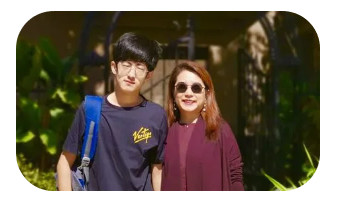
Jack's mum
A mother who works as an executive in a family global trading business
Jack is currently studying in Year 12
at Wellington College Bilingual Tianjin A Level Centre
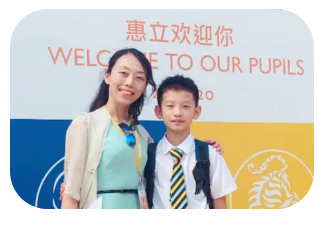
Yichen's mum
A full-time mother and a founding parent of
Hiba Academy Shanghai
Yichen is currently studying in Grade 7
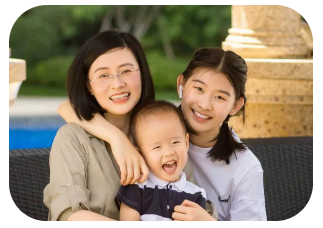
Hanni's mum
A full-time mother of two and a founding parent of Hiba Academy Hangzhou
Hanni is currently studying in Grade 8
Hanni’s younger brother will soon be enrolled in Hiba Academy Hangzhou

"What kind of education do you hope to provide your children with?" is a question often asked of new parents. At the surface level this question seems simple enough, but what we're really being asked is: “What kind of people do I hope my children will become?” Only when this question is answered will parents be able to more confidently know where they want their children to end up in the future.
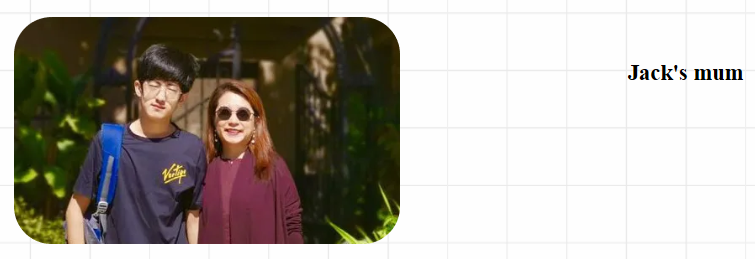
“Maybe it’s because of my experience in the workplace – I started my business from scratch with Jack’s dad and we encountered many challenges on the way – I hope that Jack can be a well-motivated person. I hope that he can follow his heart, adapt to the ever-changing future world and be willing to take on responsibilities along the way.”
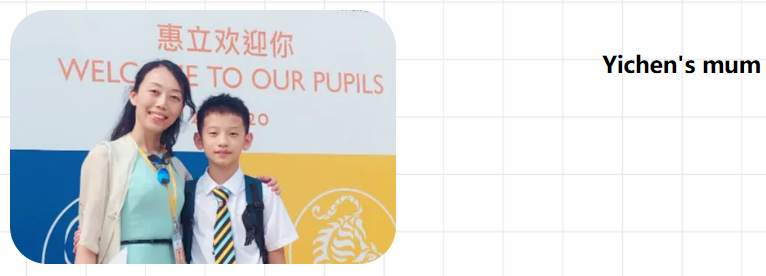
“I hope that Yichen will have a healthy body and a healthy mind. I hope he will be curious and proactive when facing new challenges and exploring the unknown. I hope he will stay humble and earnest, and that he will embrace and appreciate people’s differences with love and care.”
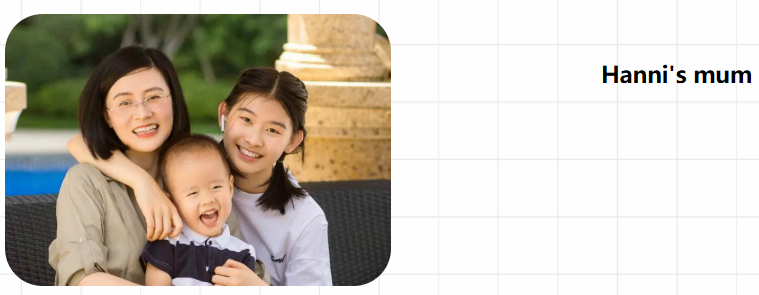
“There are many answers to this question. I hope that Hanni can be happy, joyful, confident, strong, contented and thankful, but this is only my expectation. What type of person she would grow into – that depends a lot on the education she receives.”

As Hanni’s mum suggests, the type of person a child will become depends heavily on the education they receive. Parents have to make several schooling decisions throughout a child's life, with each decision taking an enormous amount of time and effort.
With that in mind, what kind of education do these three mothers hope to provide their children with? How did they choose the right schools for their children?

Extending children's full potential
“After Jack graduated from junior high I wanted to provide him with an education that focused more on holistic development, so I started looking for private schools.
“It could be said that Jack experienced ‘love at first sight’ with Wellington College Bilingual Tianjin A Level Centre. Upon completing the written entrance test, Jack told me he had chosen Wellington. I asked him why, and he explained that teachers who had taught him previously would encourage pupils to guess the answers of exam questions they didn’t know; teachers at Wellington told him that he could leave blank spaces on the answer sheets when unsure and face the results with honesty.
“Jack’s feedback made me think that Wellington values authenticity and honesty in their education. The holistic education that Wellington advocates also suits our expectations well. Cultivating the inclusive, inspired and respect traits while not restraining the children’s natural characters allows children to achieve their full potential here at Wellington.
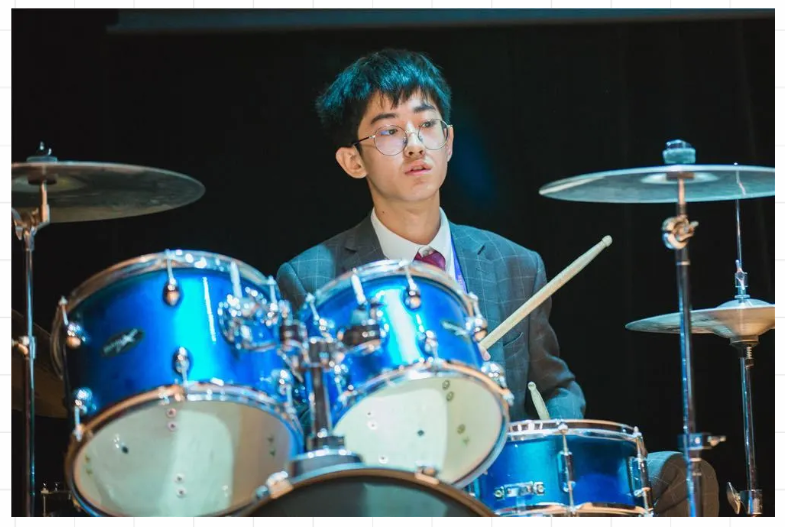
“Illustrating the above with an example: Jack will be sitting for his A-Level exam soon. He never learned the basics of drawing and aspired to study business, but he chose a painting course as one of his electives for his A-Level exam. Jack’s dad and I felt concerned as that is not his strength, but Jack’s reply put our minds at ease – despite his desire to study business in the future, he felt that drawing enabled him to observe the world from another perspective. He believes universities will favour pupils with a more diversified perspective over those who have been more exam-orientated, and he is also willing to face any consequences for this decision – he has already prepared a back-up plan.
“It is my pleasure to walk this journey with a son like Jack!”
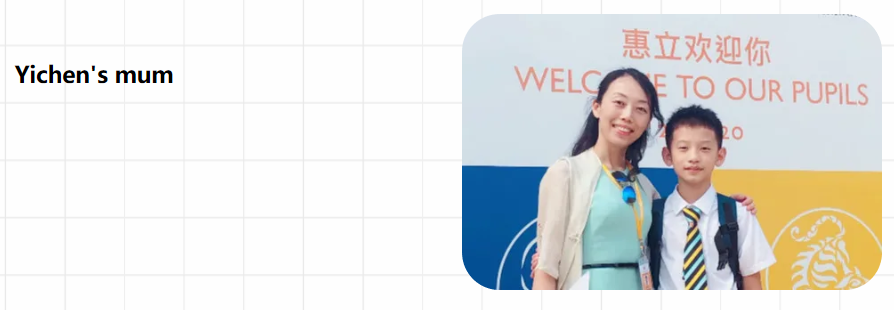
Helping children become excellent Chinese citizens with global perspectives
“After Yichen graduated from primary school, we hoped we could provide him with a more liberal style of learning to help him become an excellent Chinese citizen with a global perspective. Choosing Hiba was a natural decision for us, as the school shares the same values as our family.
“Yichen has studied at Hiba for nearly two years. I am impressed by Hiba’s integrated style of teaching, which has allowed me to more accurately understand what a bilingual education should look like.
“Hiba’s integrated style of teaching is most obvious in its integration of Chinese and Western education philosophies. Hiba formulates a highly integrated curriculum for its pupils that complies with China’s education curriculum requirements while also integrating the best parts of a British education from Wellington College in England.
“This integrated style of teaching is also evident in Hiba’s integration of knowledge across disciplines. At Hiba, almost any two or even three subjects can be dealt with by taking an integrated approach. This cross-disciplinary approach helps children learn more efficiently and, importantly, it also helps enhance and develop their learning abilities. This allows children to understand that in new or challenging circumstances, basic knowledge acquisition and methods of learning remain the same.
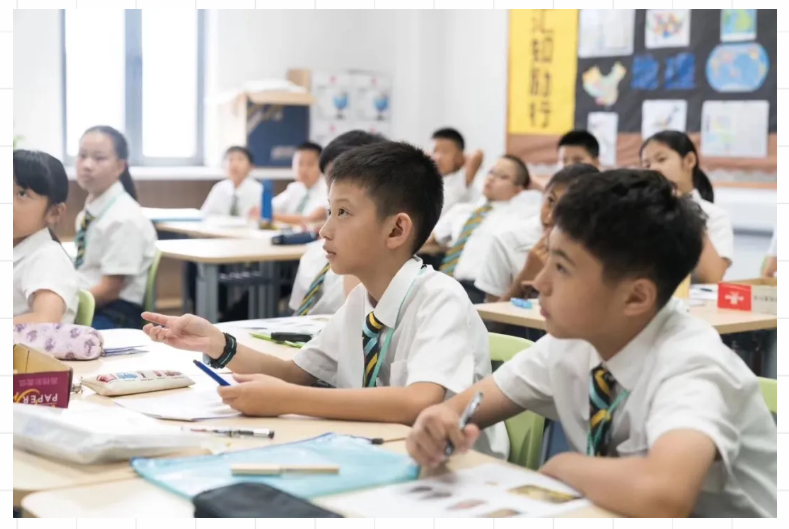
“Hiba’s final integrated style of teaching is seen in its balanced approach to school rules and individual freedom. Hiba’s vision to deliver holistic education means that it seeks to maintain the ‘individuality’ among its pupils without blurring the boundaries set by the ‘rules’. The school’s Wellbeing Programme has been very impressive in terms of fostering individuality among its pupils. Every week, the children attend a wellbeing workshop that explores a number of topics such as physical health, interpersonal relationships, worldviews, goals and significance. The programme seeks to help children develop better life skills and establish a well-rounded worldview that ensures these skills prove beneficial for the children later in life.”
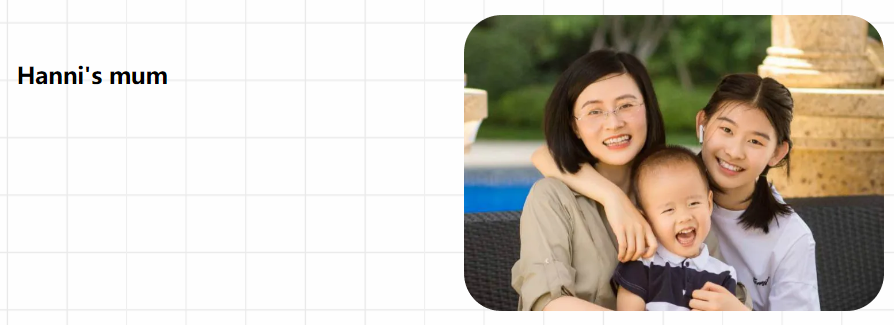
Constantly inspiring children's thinking
“When I started looking for a secondary school for Hanni, I had a few ideas of what I wanted her school life in junior high to be like. I hoped that the school would focus on quality education while also caring about the children’s physical health and personal development. At that time, very few schools in Hangzhou met these expectations.
“The more I learned about Hiba, the more I realised the school’s vision and curriculum were meeting our expectations. Learning that Wellington College China has had success running schools in Shanghai and Tianjin gave us, as parents, reassurance about the school’s standards. One of the biggest deciding factors came after Hanni visited the campus – she was very impressed by the teachers’ joyful and humourous personalities. Her experience with the staff, in particular, helped influence our decision to make Hiba both Hanni and myself’s preferred choice.
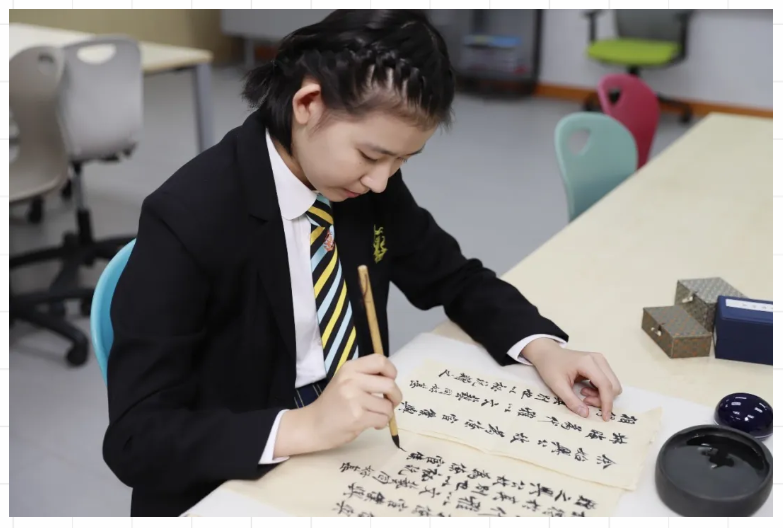
“After enrolling with Hiba we were further impressed by school’s commitment to upholding its values and visions, which are regularly put into practice by the staff. Hanni has, on a few occasions, noted that the ongoing respect and trust teachers have for their pupils is a great confidence-booster. Many of Hiba’s events serve to inspire the children to unleash their full potential and to learn to respect others.
“The kind of education that I hope to see in my child’s school is one that is inspiring. It is only by inspiring our children’s thinking that we can stimulate their curiosity and enthusiasm for learning. This is the kind of education I feel is present in Hiba Academy Hangzhou.”

When a woman gives birth her role as a mother and as an individual changes.
How do these Wellington mothers strike a balance between caring for their children and caring for themselves? What kind of mothers do they hope they will be?

Pursue what we want in our lives
“I have always worked full-time. I resumed work upon the sixth day of me giving birth to Jack so I spent very little time with him when he was young. I still look for spare time in my hectic schedule to see Jack as much as I can; I may not be able to spend long periods of time with him but I do try my best to be there to fulfill Jack’s other needs. I have to go on business trips often, so wherever I am I try to have video calls with Jack. I think my efforts over the years have been worthwhile, as Jack has grown into a son that I can be proud of.
“Although I have had success in my career, the sense of achievement that my son’s health and happiness brings me is by far the greatest success I could hope for. Sometimes I think that caring for my child is the most important achievement in my life. My child also bears witness to my successes and failures.
“I have spoken to Jack about myself – as an individual – not having to give anything up purely because I am a mother. I once asked him, “Do you want me to come back home?” His reply was impressive and has stuck with me ever since. “If you could take care of me back at home that would be the best,” he said, “But this might be unfair for you because you aren’t only responsible for me – you are responsible for many other people as well."
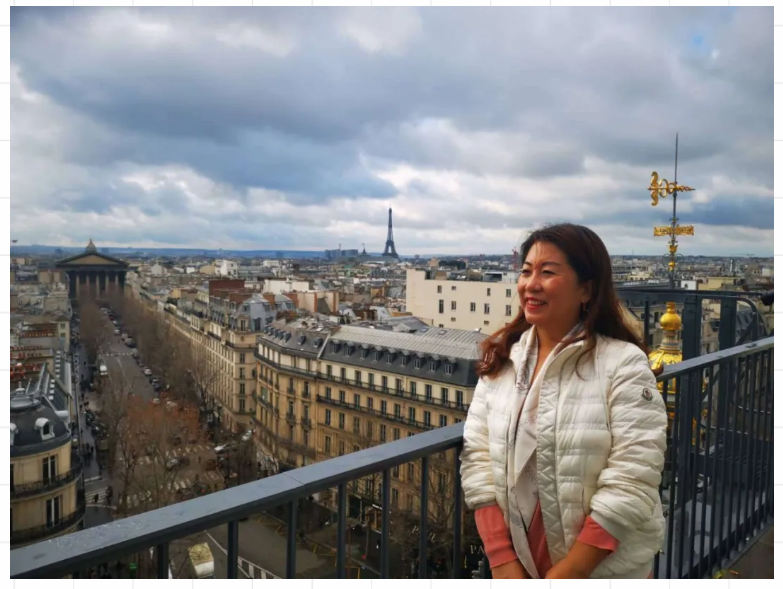
“Choosing to be a working mother or a full-time mother is a life choice faced by mothers all over the world. If any fellow mothers feel that a certain sacrifice must be made in order to become a full-time mother, please don’t feel in this way. Being a mother certainly does not mean we have to give up anything for our children – we can pursue what we want in our lives. Let us be mothers who can grow together with our children.”

Devoting ourselves to motherhood
“I decided to be a full-time mother when I was in the process of selecting a secondary school for Yichen.
“My life choices can essentially be divided into decades: in my 20s I was free-spirited and adventurous; in my 30s I had matured and was more sophisticated – especially in the workplace; in my 40s I had the chance to redefine myself and focus on my family and my children – I pressed pause on my professional career for a period of self-reflection. There are moments of time in each of our lives when we must decide what our point of focus will be. We must devote ourselves to this point of focus for however long it takes to learn its value and meaning in our lives.
“When you have children, growing together as a family is a complicated task. Watching children grow older brings joy, happiness and new learning opportunities. New challenges often emerge as they continue to grow, but we can face anything with our children. Through our children’s development we also see our own growth as people and as parents.
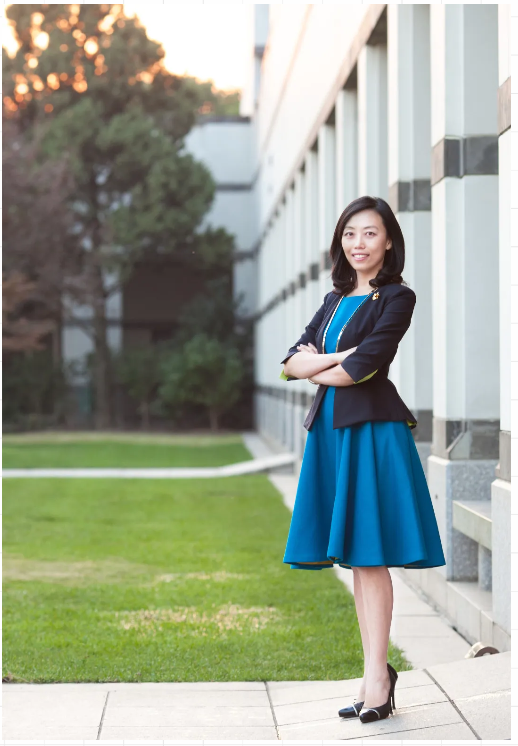
“A child’s relationship with their parents often changes over time as well. When we are guiding our children from a close distance, we have the chance to demonstrate our own attitudes and reactions to real-life experiences. Sometimes, children learn and achieve more than their parents ever did. We cannot help but by amazed by the new generation’s ability to act and innovate.
“Focus on the now, don’t worry about the past. At this moment in time, maintaining a warm and welcoming family for my child is my point of focus. For Yichen to have complete trust in us and feel like his family is his strongest support is the most important thing.”

A mother and her children can enjoy their lives while shouldering their own responsibilities
“As a mother of two, there have been two occasions in my life where I had to decide between caring more for myself or my children. I chose ‘myself’ the first time, but now that I am a full-time mother I hope that I can explore and experience another side of life.
“After experiencing life as both a working and full-time mother, I have realised that no matter what path you take there will always be challenges ahead. When I was a working mother, my biggest regret was that I had very little time to spend with my children; now that I am a full-time mother I have a hectic schedule every day, caring for my elder daughter as soon as I put my younger son to sleep.
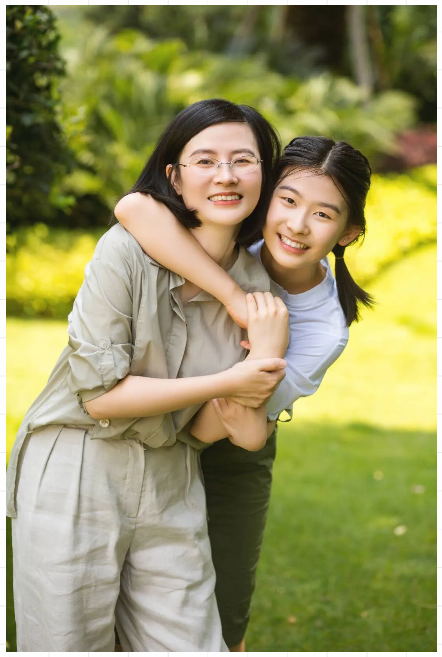
“Whether one of these roles is more tiring or distressing than the other is impossible to tell. I do feel like I can sensibly say, 'You can't have your cake and eat it, too.' Once we make a decision we must adjust our mindset and enjoy our lives as we shoulder our responsibilities. As the Chinese saying goes, 'Motherly love is the greatest and the most selfless.' I only truly understood this once I became a mother.
“Here, I would like to thank my own mother for all the support she ever gave me as a child.”

This concludes the story of our three Wellington mothers. They have achieved success in both their families and their careers, and although we have only been given a small glimpse into their lives with their children, it has been a joy to learn more about the nature of a mother’s love. They have shown great wisdom about educating their children, they have made brave decisions and they have all responded very well to the question, “What is a mother’s greatest achievement?”
Many people believe that when a woman becomes a mother she is endowed with a kind of ‘maternal instinct’ or maternal bond that solidifies the relationship between herself and her child. Philosopher Will Durant described the phenomenon in The Story of Philosophy:
“And as for the maternal instinct, it is not strong before the birth, or even the growth, of the child; the average mother accepts the newborn babe rather with resignation than with joy; love for it is a development, not a sudden miracle, and grows as the child grows, as it takes form under the painstaking care of the mother; not until it has become the embodiment of maternal artistry does it irrevocably catch the heart.”
So, what is a mother’s greatest achievement? Is it the successful growth and development of her children, or herself? A concrete answer is not needed – knowing that all mothers love themselves as much as they love their children is the only thing that matters.








